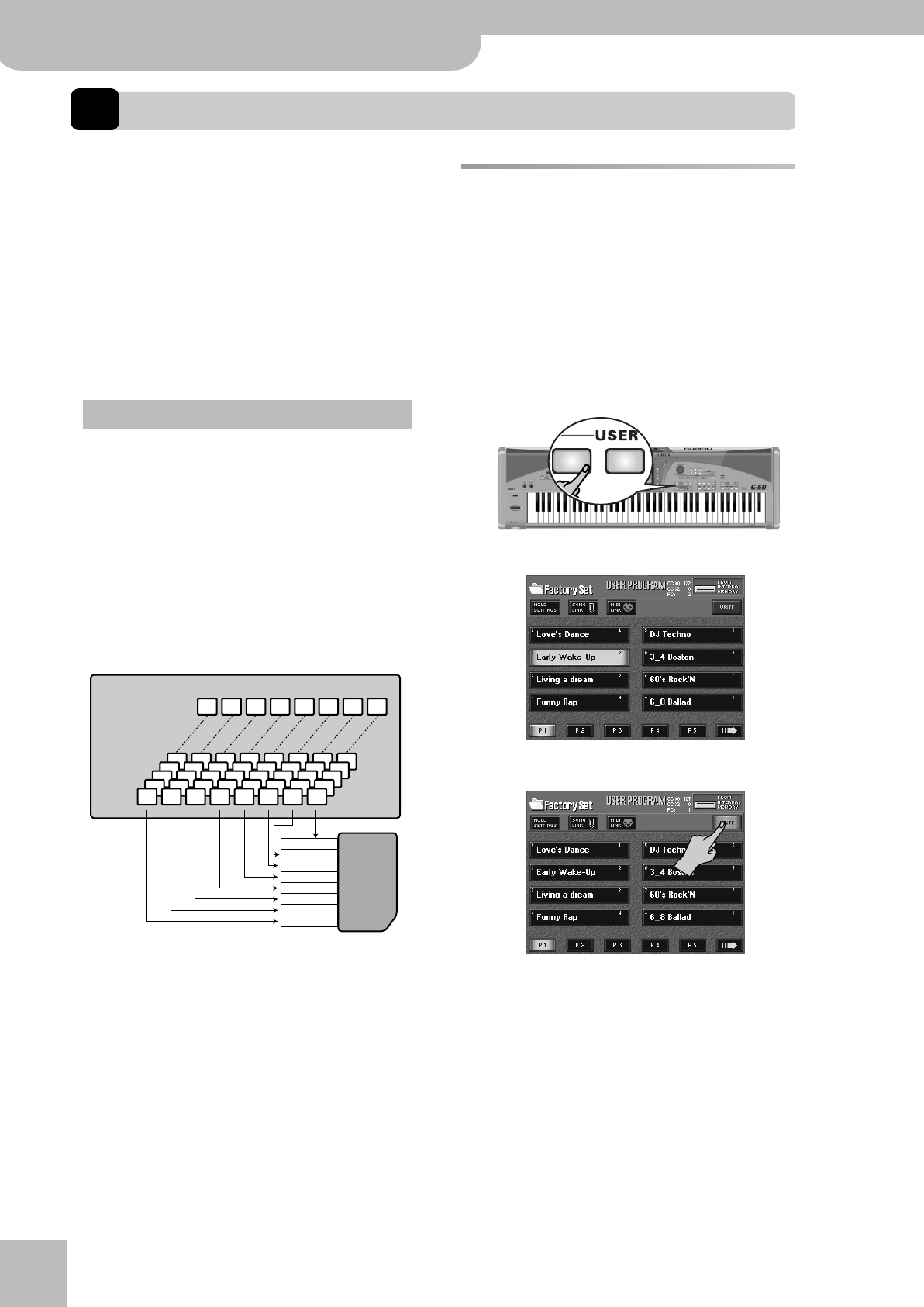
Working with User Programs
88
r
E-60/E-50 Music Workstation
9. Working with User Programs
The E-60/E-50 also provides User Program memories
that allow you to store almost all settings (or registra-
tions) you make on the front panel and the various dis-
play pages. Additional registrations can be loaded
directly from the internal memory or a memory card.
Before taking a closer look at the User Programs, there
is one thing we have to point out: all settings related to
MIDI must be written to a MIDI Set (page 193). MIDI
settings are not saved to a User Program.
Note: You can link a MIDI Set to each User Program, so that the
User Program in question automatically loads the required MIDI
settings.
Unlike previous Roland instruments, the E-60/E-50 no
longer has a fixed area where it stores User Program
settings, so that the number of User Programs is, in
fact, unlimited. User Programs can reside in the internal
memory or on a memory card. You can even load them
individually using the User Program Finder.
To keep this massive amount of information manage-
able, the E-60/E-50 works with User Program Set Lists
(hence the [LIST] button).
Such lists are what their name suggests: enumerations
of User Program files stored in the same memory area
as the list file itself.
Set Lists are references to User Programs. They do not
contain those registrations. The advantage of User Pro-
gram Set Lists is that loading a completely different set
of registrations takes less than a second (loading User
Program Sets on an older Roland arranger instrument
took much longer).
This allows you to prepare one set of User Programs for
weddings, another for corporate events, a third for
anniversaries, etc., that may access the same User Pro-
gram data here and there. If you change a User Pro-
gram (e.g. by selecting another sound for the LW part),
that change is automatically adopted by all Set Lists
that refer to that User Program.
Saving your settings to a User
Program
It is a good idea to memorize your settings frequently,
even if you still need to do some touching up after-
wards.
Those intermediary saves allow you to return to the
previous stage whenever you do not like your last mod-
ifications.
(1) Change all settings the way you want to save
them.
(2) Press the USER PROGRAM [LIST] button.
The display changes to:
(3) Press the [WRITE] field (it lights).
(4) Use the [P] fields and [˚] to select the page (1~18)
where you want to save your registration.
(5) Press a big field [1]~[8] to select the destination
memory.
About the User Program memory structure
PAGE 2
PAGE 1
2345678
PAGE 18
12345678
1
User Program list= 8 references x 18 pages
The referenced User
Programs are saved
separately.
Data File
Data File
Data File
Data File
Data File
Data File
Data File
Data File
Internal
memory or
memory
card.
Same system for
pages 2~18.
LIST
HOLD
E-60_50_OM_UK.book Page 88 Thursday, June 22, 2006 10:06 AM


















